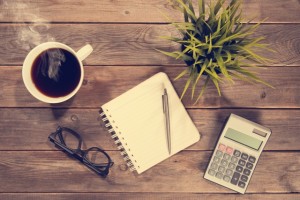 Most things that you buy for your business can be classed as expenses. Any Corporation Tax your business pays is calculated after your expenses have been taken into account. So accurately recording expenses means you can end up paying less tax.
Most things that you buy for your business can be classed as expenses. Any Corporation Tax your business pays is calculated after your expenses have been taken into account. So accurately recording expenses means you can end up paying less tax.
Startup Costs
One of the first things your business can claim back are your company formation and business registration costs. Examples of other typical startup expenses that can be claimed are:
- Graphic design and websites
- Any stock or supplies your business needs
- Salaries
- Phone bills and electricity bills
- Office supplies
There are some things you can’t claim as business expenses. Some of the most common are:
- Travel from your home to your normal place of work
- Entertainment for clients or suppliers such as taking people out for dinner or drinks
- Gym memberships
- Anything bought for personal use such as TVs or computers
- Work clothes (unless it is a uniform or safety gear)
- Coffee, lunch or other food bought on normal working days (you can claim some of this if you do an overnight business trip).
Working from home
Lots of people start a business from their home. If you are doing this you can claim a proportion of your mortgage, rent and utility bills as a business expense. A simple example would be if you turned your spare bedroom into an office. If you say that this room makes up 20% of your house then you can claim 20% of your mortgage, electricity and broadband as business expenses (assuming you are working from home full time). You will need to have a consistent method for working out what you are claiming as expenses and be able to explain it if HMRC ask.
Alternatively you can claim a flat rate of £6 per week (£312 per year) for using your home as a business location. Claiming the flat rate means you don’t have try and work out which bits of your bills, and what percentage of your rooms, are being used for business purposes. This simplifies things a lot and reduces the amount of questions HMRC are likely to ask.
If you use your mobile phone for business and or personal use then you can claim a proportion of your phone bill as an expense. Again you will need a sensible way to do this, the easiest is to get an itemised bill and divide up the calls.
Travel Costs
If you are travelling for work you can claim back some, but not all of your expenses. The first thing to know is that you can’t claim for travel from your home to your normal place of work. So, if you have an office or shop you can’t claim for anything you spend on the commute to work.
Vehicles
You can buy a car or van through your company but this will not be treated as a straightforward expense. There are special rules covering vehicle purchases so you should speak to you accountant about this. In many cases it can work out cheaper to buy the vehicle yourself and then claim back the mileage. There are standard mileage rates for most vehicles:
| Vehicle | First 10,000 business miles (per year) | Each business mile over 10,000 (per year) |
| Cars and vans | 45p | 25p |
| Motor cycles | 24p | 24p |
| Bicycles | 20p | 20p |
If you are going to be claiming mileage allowances then you should keep a record of your trips. Many people keep a notebook in the glove compartment of their car so they can note down the reason for any trips plus the time, date and mileage.
Trains, Planes and Buses
In most cases you can claim back the full cost of any plane, train or bus tickets you buy for business travel. This can’t include normal travel to work but could cover the cost of travelling to a meeting, trade show or conference. You can also claim for hotel rooms and meals (for yourself) if your trip includes an overnight stay.
Claiming Expenses if you are VAT registered
Many of your business expenses will include VAT. If you are VAT registered you need to separate out the VAT portion of your expenses. So, for instance, if you spend £100 on office supplies from a VAT registered business £16.67 would be VAT. You can therefore claim £83.33 as an expense and use this to reduce your Corporation Tax bill and you can reduce the amount of VAT you pay to HMRC by £16.67. You still get to claim the full £100 back but it is done in two parts.
Recording your Expenses
You have to keep a record of all of your expenses and be able to show some proof of them, normally by keeping a copy of any receipts or invoices. In order to keep things simple you may want to make yourself a simple expenses form which you can fill in each week and attach any receipts to. Alternatively you can use bookkeeping software to record your expenses as you go along. The video below shows the process for recording expenses in the bookkeeping software we provide to our customers:
As well as providing you with bookkeeping software to record your expenses The Company Warehouse provides specialist accountancy services for new startup businesses. Just contact our Business Consultants or give us a call on 0800 0828 727 to find out more.